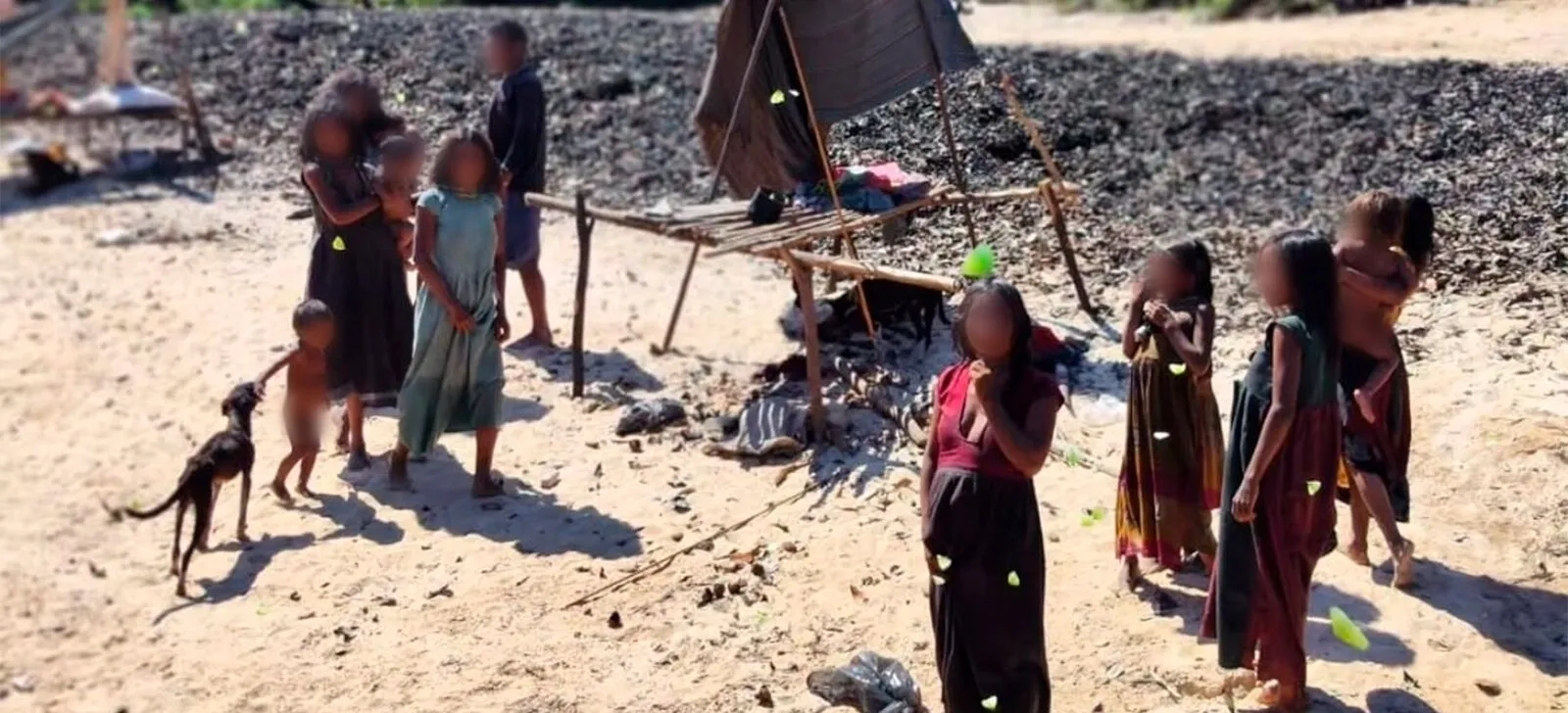Pirahã Indigenous people face violence, hunger, and vulnerability in the Amazon
18 de September de 2025

By Fred Santana – From Cenarium
MANAUS (AM) – CENARIUM received, this Wednesday the 17th, an anonymous report from a professional working in the defense of the rights of traditional peoples in southern Amazonas, indicating that the Indigenous Territory (IT) of the Pirahã people has been taken over by illegal miners, loggers, and hunters in the region of Humaitá (AM), 390 kilometers from Manaus. To survive, according to the account, the Indigenous community resorts to collecting food outside their lands, which generates conflicts with other residents in the region.
According to the report, the situation at the site reflects omission by the National Foundation for Indigenous Peoples (Funai). In July 2024, the institution closed protection bases alleging lack of resources, but reports from the Madeira-Purus Ethno-Environmental Protection Front (FPE) indicate that resources were available but not applied.
In addition, social programs intended for the Indigenous people, the report stated, are not being effectively accessed, including benefit cards irregularly controlled by third parties. CENARIUM requested a statement from the institution on the case, but by the time this material was closed, no response had been received.
The height of tension between traditional peoples and local residents was recorded on Monday the 15th, when a conflict near the Maici River, at kilometer 45 of the BR-230 (Transamazonian Highway), in Humaitá (AM), resulted in the death of a man and left another seriously injured. The episode is under investigation by the State Civil Police (PC-AM).

The workers were building fences when they were surprised by Indigenous people. One was struck by an arrow in the head and killed with a bladed weapon, while the other was wounded on his left side and survived. The Pirahã’s food insecurity is believed to have been the indirect cause of the incident.
Sources in the region told reporters that the community is not offensive but reacts when invaded or threatened. The Pirahã people, who have lived in the Madeira River region for more than 200 years, maintain traditional practices and limited contact with society.
In 2025, according to the source, an emergency plan by the Ethno-Environmental Protection Front ensured logistical support and food distribution to the Pirahã. After this period, members of the team reported institutional persecution and were removed from their positions. Since then, the residents have once again lived in a situation of vulnerability.
The plan was determined by the Directorate of Territorial Protection (DPT) after the Madeira Regional Coordination (CR Madeira) announced the closure of Access Control Posts (PCAs), alleging lack of resources.
The FPE, in turn, assumed coordination of the PCAs as a measure to protect the Indigenous people. The closure of the posts, according to the witness interviewed by the report, constitutes non-compliance with ADPF 709, a decision of the Supreme Federal Court requiring government action to protect Indigenous peoples, including sanitary barriers, removal of invaders, and access to healthcare during the Covid-19 pandemic.
Longstanding history of neglect
For nearly 20 years, Indigenous and support organizations have denounced the lack of adequate healthcare for the Pirahã. According to data compiled by the Conflict Map of the Getúlio Vargas Foundation (FGV), diseases such as malnutrition, dehydration, malaria, tuberculosis, and complications related to childbirth were the main threats to this people’s survival between 2007 and 2008.
In 2023, a visit by officials from the Ministry of Indigenous Peoples to the Pirahã Indigenous Territory found a serious situation of malnutrition and hunger in the community.

